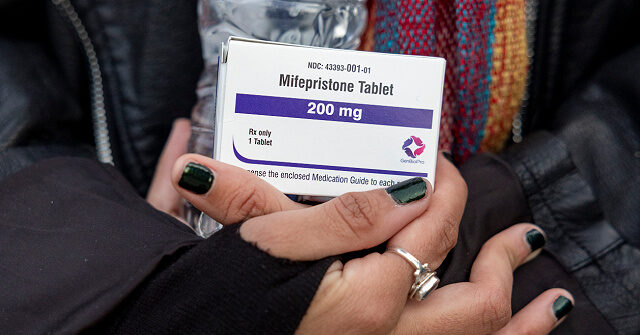A Texas Republican lawmaker, Rep. Pat Curry, has introduced a bill, House Bill 1339, that seeks to reclassify abortion pills, specifically mifepristone and misoprostol, as controlled substances. The proposed legislation would categorize these drugs as Schedule IV substances, similar to medications like Xanax or Valium, which are considered potentially abusable. Curry aims to make it more difficult for individuals, particularly minors, to obtain these abortion pills online without a prescription. He raised concerns about the lack of age verification and identity checks for online prescriptions, suggesting that young girls could easily acquire these medications without oversight.
In Texas, abortions are largely restricted, allowed only when necessary to save a mother’s life or prevent severe injury. A prior law prohibits the mailing of abortion pills within the state; however, many online pharmacies operate outside of Texas or in states with more permissive abortion laws, thereby circumventing the state’s restrictions. Curry has expressed that the goal of his legislation is not to hinder doctors from prescribing these medications when warranted for legitimate health reasons, such as miscarriage management. Instead, he emphasizes the need to prevent misuse of the drugs that could undermine existing state laws against abortion.
Curry has stated that he consulted with obstetricians and gynecologists in Texas, as well as the author of a similar law enacted in Louisiana earlier in the year, which was the first to classify abortion drugs as controlled substances. The Louisiana law not only reclassified these medications but also criminalized the unlawful use of abortion drugs to induce termination against a woman’s will. Under the Louisiana law, possession of abortion pills without a prescription is illegal, and violators could face up to five years in prison, while pregnant women themselves are exempt.
The Louisiana legislation was partly inspired by a troubling case where a woman named Catherine Herring faced multiple attempts at a coerced abortion by her partner using these pills. After the man’s conviction for child injury and assault of a pregnant person, his sentencing sparked outrage among family members who felt justice was not served. Herring’s experience was highlighted by her brother-in-law, Sen. Thomas Pressly, who advocated for more stringent laws to protect women from similar situations in the future, showcasing how personal experiences can inform legislative approaches.
While the Louisiana law is currently in effect, challenges have emerged from health care providers opposing it. Supporters of Curry’s Texas bill, including Pressly and Herring, have expressed their willingness to testify in favor of the legislation during the current legislative session. Curry anticipates that the bill will receive substantial backing from fellow Republicans, reflecting a broader trend among conservative legislators seeking to further restrict access to abortion services.
As the legislative landscape surrounding abortion continues to evolve, medication abortions have gained prominence, accounting for approximately 63% of all abortions in the U.S. in 2023, an increase from 53% in 2020. This uptick is indicative of the shifting dynamics in how abortions are accessed and performed amid tightening regulations. Curry’s proposed legislation represents a significant effort to further constrain access to abortion pills, driven by a desire to reinforce state laws and safeguard minors, amidst a backdrop of increasing scrutiny surrounding reproductive rights and health access across the nation.

